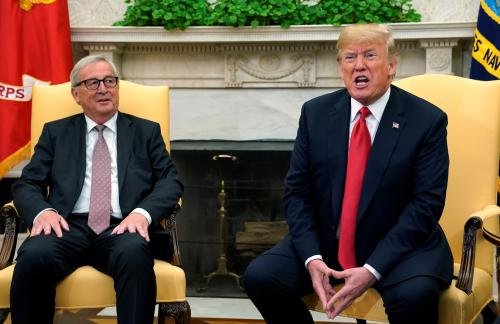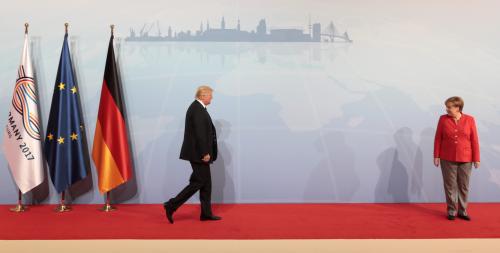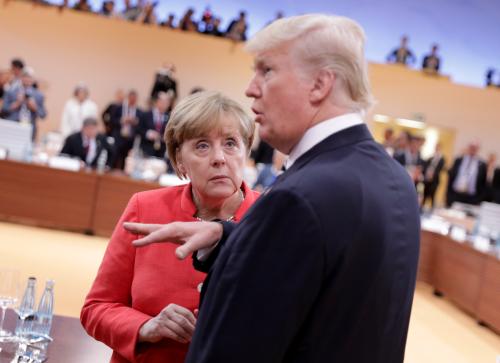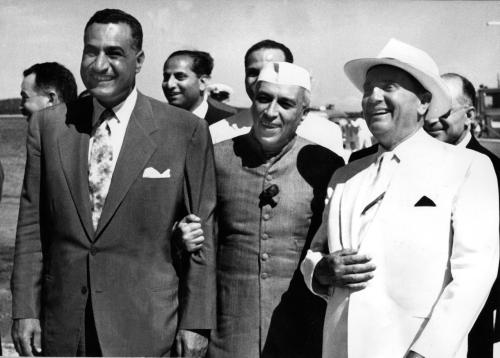Today, we are delighted to launch a new research resource as part of the Brookings – Robert Bosch Foundation Transatlantic Initiative. The Trans-Atlantic Scorecard will be produced quarterly and is a collective effort by Brookings scholars and researchers working on Europe. The Scorecard presents data and facts from the past three months and a survey on some of the most pressing questions of the day. Unlike most surveys, this one is not anonymous—each scholar goes on the record and provides a brief explanation for their answer.
In the inaugural Scorecard, Brookings scholars vary widely on the overall state of the trans-Atlantic partnership—on a scale of 1 to 10 we had two scholars giving a 1 and two giving a 6, with 15 scholars in between for an average of 3.6. Scholars generally agreed that the meeting between President Trump and European Commission President Jean-Claude Juncker had averted a trade war and they disagreed with the proposition that Turkey is on the verge of a geopolitical realignment. On the data side, we find out that Trump calls President Macron of France more than other European leaders and that the United States has hardly set a strong example for increasing defense spending relative to GDP.
 The Scorecard is published near the midway point of Trump’s first term with the trans-Atlantic relationship on a knife edge. Jeremy Shapiro summed it up nicely in his contribution to the survey. “On the negative side,” Jeremy said, “the U.S. president thinks the trans-Atlantic relationship should not exist. On the bright side, that matters less than one might expect for daily business.” What Jeremy was getting at was the remarkable split between the president and his team. For instance, Trump openly questions the value of NATO but the United States continues to increase its commitment to Eastern Europe.
The Scorecard is published near the midway point of Trump’s first term with the trans-Atlantic relationship on a knife edge. Jeremy Shapiro summed it up nicely in his contribution to the survey. “On the negative side,” Jeremy said, “the U.S. president thinks the trans-Atlantic relationship should not exist. On the bright side, that matters less than one might expect for daily business.” What Jeremy was getting at was the remarkable split between the president and his team. For instance, Trump openly questions the value of NATO but the United States continues to increase its commitment to Eastern Europe.
The unanswered question for the next two years is whether it is possible for the trans-Atlantic relationship to remain on this knife edge or if it will fall. Trans-Atlanticists certainly hope that they can muddle through until the elections of 2020 but there are great risks along the way. There are substantive differences over Iran and trade. There is also the matter of how the president would respond to an external crisis, whether over national security or financial in nature. And Trump might yet be reelected in 2020 on an America First platform.
We will be tracking this issue, and others, over the next two years. We hope that you will find the Scorecard to be a helpful resource.
The Brookings Institution is committed to quality, independence, and impact.
We are supported by a diverse array of funders. In line with our values and policies, each Brookings publication represents the sole views of its author(s).








Commentary
Announcing the Trans-Atlantic Scorecard
September 17, 2018